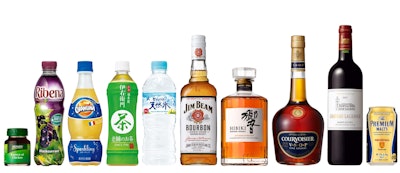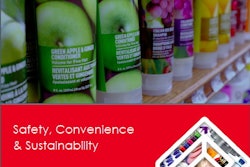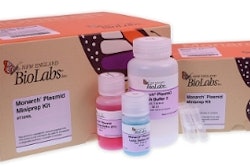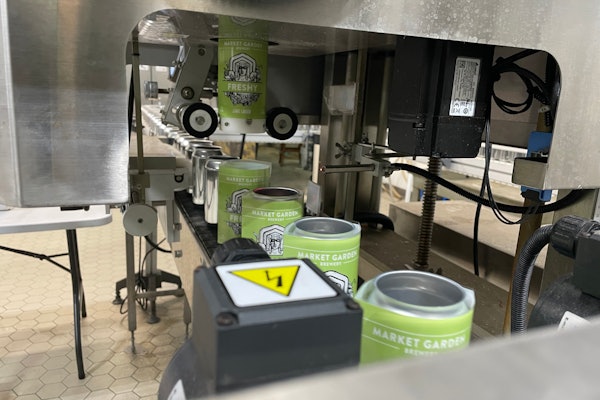
Japan’s Suntory Holdings Limited, one of the world’s leading consumer beverage companies, and Anellotech, a sustainable technology company focused on producing cost-competitive renewable chemicals from non-food biomass, have entered into the next phase of a strategic partnership focused on advancing the development and commercialization of cost-competitive 100% bio-based plastics for use in beverage bottles. Suntory’s beverage brands include Orangina, Schweppes, Ribena, Lucozade, and BRAND’S, as well as major alcohol brands Yamazaki, Hibiki, Jim Beam, Courvoisier, and Château Lagrange.
The partnership, which began in 2012 under a collaboration agreement, has provided more than $15 million in funding to date. Suntory currently uses 30% plant-derived materials for their Mineral Water Suntory Tennensui brands and is pursuing the development of a 100% bio-bottle through this partnership.
The Anellotech alliance with Suntory supports the development of bio-aromatics including bio-paraxylene, the key component needed to make 100% bio-based PET for use in beverage bottles. As an integral component in the bio-based value chain, Anellotech’s Bio-TCat™ proprietary thermal catalytic biomass conversion technology cost-competitively produces “drop in” green aromatics, including paraxylene and benzene, from non-food biomass.
According to Anellotech, the announcement of the new phase of the project marks a major milestone in making 100% bio-based polyester and bio-based PET bottles a reality. With construction now complete on the supplier’s new, fully integrated TCat-8 development and testing facility, Anellotech is ready to commence installation with the groundbreaking scheduled for late January 2016.
Operational in 2016, this 25-m-tall unit will confirm the viability and suitability of the Bio-TCat process for scale-up, and will generate the data needed to design commercial plants using Bio-TCat technology. The TCat-8 unit was jointly designed by Anellotech and its R&D partner IFP Energies nouvelles (IFPEN), and will use a novel catalyst under joint development by Anellotech and Johnson Matthey. After verification of the continuous operation of TCat-8, Suntory plans to move ahead with studies to consider the development of the first commercial-scale Bio-TCat plant.
“By focusing on the development of substitute materials to replace petroleum in making everyday consumer products, we are expanding our commitment to reduce the environmental burden of beverage packaging, including reduction of CO2 greenhouse gas emissions,” said Munehiko Takada, Head of the Packaging Material Development Department at Suntory. “We are pleased with the progress Anellotech and its industry-leading partners have made, which gives us confidence in their ability to develop and commercialize a sustainable and cost-effective process for producing bio-based aromatics.”
Suntory joins Anellotech’s existing partners IFPEN, Axens, Johnson Matthey, and a multinational corporate investor, which has provided a $7 million equity investment, the first portion of a total $10 million investment.
By starting from cost-advantaged feedstock and employing a solid catalyst in just one fluid-bed reactor, Anellotech’s process can produce the 100% bio-based aromatic chemicals that are used to make many plastics, the company explains. By going directly from biomass to BTX in this one reactor, Anellotech does not make a highly oxygenated bio-oil intermediate product often seen in multi-step pyrolysis processes, and avoids the need to add substantial amounts of costly hydrogen.
























